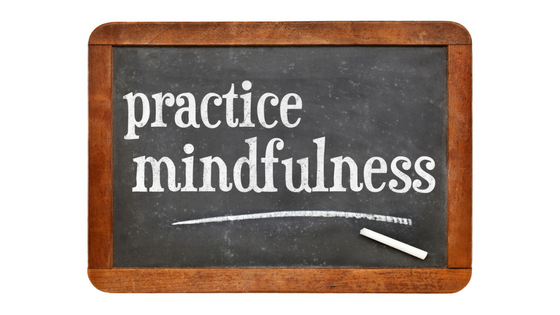Managing Finances While Bipolar: A Guide
I recently read a post by Glenna Gill (a fantastic writer; you should check out her work) in which she revealed the stress and devastation she wrought on her marriage and family due to financial overspending. Managing finances is something she really struggles with.
I know a lot of people who would read her story and respond that she was simply experiencing the natural consequences of her behavior. Managing finances, they’d say, are a basic, fundamental life skill. They’d be right, too.
What they would miss is that Glenna lives with bipolar disorder, just like I do. What they would miss is the extreme and unusual challenge that the disorder presents for us in managing finances. They don’t understand and appreciate is how strongly mania influences our purchasing decisions, to the point that “spending sprees” are considered a key symptom of bipolar disorder.
It is hard to help someone who does not live with bipolar disorder understand that spending while manic is involuntary. There is a pressure associated with it, a need to be freed of the strictures of everyday life. It is more than simply being rash and indulging ourselves carelessly; we legitimately need the freedom to spend unusually during these periods.
It’s no surprise, then, that most people with bipolar disorder struggle with managing finances. It’s no surprise that nearly one-third of the United States’ homeless population is comprised of people living with a mental illness, with bipolar disorder represented strongly on the list.
Don’t ask me how many times I’ve had “pay rent or quit” notices up on my door. It is only by the grace of God that I’ve never been evicted from an apartment, and that the one time I found myself homeless (and, not coincidentally, pregnant), I was fortunate to have a family that was able and willing to take me in and house me while I got back on my feet.
I’ve had my car repossessed twice, bailed out both times courtesy of my parents.
I’ve had my water shut off, my electricity turned off, and mailboxes full of “Urgent Attention Required” notices from credit card companies and banks.
One year – just one year, mind you – my overdraft fees on my checking account were in excess of $5,000.
So yeah – I’m no exception to the rule when it comes to living with bipolar disorder and struggling financially.
Out of these experiences, though, I’ve learned some hard lessons about managing finances effectively. Some of these are common money management lessons, and some are unique to managing my symptoms.
Managing Finances with Bipolar Disorder Effectively:
1. No credit cards and no loans.
A mortgage might be the only exception to this rule that I’d be willing to make. Otherwise, it’s too easy to justify spending five dollars on something and putting it on a credit card to be paid off “the next time I get paid.”
The reality is that the paycheck will come in and that money will be needed somewhere else more urgently. We may be able to keep up with the minimum payments for a while, but this demon will swallow us (and our paychecks) whole if given the opportunity.
Every time I’ve thought, “I’m OK now; I can handle a credit card responsibly now” and opened an account, I’ve been faced with a hard reality check: Just like an alcoholic can’t have “just one drink,” I can’t have any credit cards.
For me, managing finances effectively means managing my case effectively.
2. Have two savings accounts.
One is for emergency savings. For this, I follow the standard recommendation of 6-12 months of living expenses. For my husband and I, this money is kept at a different bank than my checking account (I did the same when I was single).
Banking apps currently make it really easy to transfer funds between accounts when they are at the same institution, so separating them out helps minimize impulsive decisions to dip into savings for non-emergencies. Further, the ATM card is kept at home and not in my wallet.
In fact, only my husband currently has access to our savings account and it takes three days for funds to get transferred to us. We make decisions about pulling funds out of this account jointly. If you are unmarried, I advise identifying someone you can trust to consult before pulling money out of this account.
The second account is the bipolar savings account. This one is kept at the same bank as the checking account and I am free to dip into it when I am manic and need to indulge in some spending. This account gets deposits when I am stable and able to think clearly. When mania hits, I can spend freely out of this account and my husband doesn’t have to worry that I will unintentionally bankrupt us.
This second account is my way of acknowledging that I will always have manic cycles (no matter how good I am about taking my meds) and planning for them. One benefit I didn’t expect is that knowing that the money exists and is available for me to spend reduces my urge to spend while manic. I don’t understand it, but it’s true.
Having this second bank account has been a huge in managing finances in our home.
3. Refuse all overdraft options.
When I opened my last checking account, the account rep and I went over all the details very carefully. I insisted that any options that might allow for overdrafts were turned off. If the funds aren’t in my account, I don’t want the charge to go through.
For me, overdraft “protection” isn’t a convenience and it’s not a help. It’s a way for money to magically siphon out of my account.
This was probably the most challenging change I’ve made for managing finances. It wasn’t until I started to live without overdrafts that I truly understood how I’d relied upon them as a form of credit. However, it’s been one of the best changes I’ve made.
By avoiding all forms of financing (credit cards, loans, overdraft protection), we force ourselves to live on cash. It forces a discipline that we otherwise don’t have – and saves us a lot of money. Those fees add up quickly!
4. Stock up.
Every month, I buy a little extra of the household things we use to make sure that we always have more on hand than we need. One month, I may buy three extra sticks of deodorant. I usually keep a week’s worth of food in the freezer (usually this looks like frozen pizzas, frozen lasagna, soups, and stews).
It’s taken me several years, but I now have a stash of nearly everything in our home. When I have lean months or if I go over budget, I still have food stashed away for my family.
5. All bills get paid auto-paid.
Each paycheck is dedicated to paying specific bills. I currently get paid on the first of the month, and the first thing I do is pay every utility bill for the month. Our internet bill is due on the 28th, so I pay this one a month ahead so I never incur late fees.
When I was paid twice a month, the first paycheck of the month went to the exact same bills every month, and my mid-month paycheck went to all my other bills. If you get paid twice monthly, you’ll want to look at all your recurring bills and figure out when you can pay each of them and still have money left for food, etc.
There’s no shame in paying bills early, either. My internet bill usually shows a negative balance because that’s how I stay ahead on it. There’s no law that says you can’t pay your rent until the 1st; if you need to cut the check out of your mid-month paycheck to make sure the check will clear, I support you in that decision. It’s the easiest way to avoid accidentally incurring late fees, which can quickly add up.
I recognize that if you are paid hourly and your shifts change, this can be more challenging. When I had this challenge, I budgeted off the minimum amount I knew I could expect.
6. I keep all my receipts and record the amounts.
Every week, I open up an Excel spreadsheet I’ve created that tracks how I’ve intended to spend my money for the month. I take all my receipts for the week and total how much I’ve spent on food, household items, rent/mortgage, our cats, etc.
This exercise keeps me accountable for how I’m spending my money and keeps me in check about how much I have left to spend.
I know other people work off cash envelopes and track how much they have left to spend by seeing how much is left in the envelope, but I’m not wired that way.
For me, seeing the growing pile of receipts puts me in check, and recording what I’ve spent helps me stay on track. If working on a cash basis works for you, then go for it!
7. My husband and I manage our money jointly but maintain separate accounts.
Dan and I sit down and figure out how we are spending our money for the month together. This is a critical exercise that forced us to get on the same page about our priorities and led us to address some hidden assumptions. In addition, we each are responsible for paying specific bills.
For example, Dan likes to pay the mortgage and make the savings deposits directly, just so he knows they are done. It’s important for his peace of mind. I pay all the utilities and most of our food expenses, plus manage a few other areas.
Once we decide how we are managing finances for the month, we balance our accounts so that we each have enough to cover our financial responsibilities. Since Dan currently earns more than I do, this usually means he transfers money to me on the first of the month. If I earned more than him, I would transfer money over to him.
For Dan, this is an important way to make sure that if I slip up, I don’t damage the family long-term. We may run out of toilet paper, but I can’t spend the mortgage money early. This may sound controlling, but I find security in this. We both have peace of mind that our needs will be met during the month.
8. It (almost) goes without saying: I’m rabid about my self-care.
I take my meds on time, every day. I get my prescriptions filled before I run out of pills. I attend therapy consistently, journal and meditate, and focus on my overall health and well-being. I also avoid caffeine, don’t drink alcohol, and have made several other dietary changes in support of my health.
I’ve learned that when I take good care of myself, my mood swings are milder (though still more severe than a neuro-typical person) and I’m less likely to lose financial control during cycles.
The Benefit of Making Changes Resonate Beyond Finances
These are the ways I’ve learned to manage my finances in a way that supports and acknowledges the reality of my bipolar disorder. Making these changes was not easy; transitioning to this new way of operation took sacrifice and struggle. Sticking with them, though, has led to several benefits for me and my family.
Dan and I have peace of mind that our family is always provided for. We will not be homeless because I lose control during a manic episode (although our collection of gel pens, colored pencils, journals, and notebooks is rather impressive).
When I go manic or become depressed, we can focus on helping me get well again. We’ve minimized the likely after-effects of poor choices made while on a mood swing.
This Is My Plan, What’s Yours?
These are all the changes I’ve made to manage my money more effectively. I’ve tried a lot of other things to help me, and many of them didn’t work for me. I had to find what works for me, for my marriage, my family, and be realistic about how I behave and respond.
Some of what we do may work for you. You may have read some of the changes we’ve made and immediately relate
What works for me may not work for you, and that’s all right. You’re a different person than I am, your bipolar disorder may manifest differently than mine does, and your family likely has different needs than mine.
Just keep experimenting and trying new things. You will find a system that works for you.
What are some ways you struggle financially? What have you tried that’s worked for you?
Looking for daily inspiration and community? Join our warm and supportive Facebook group!









